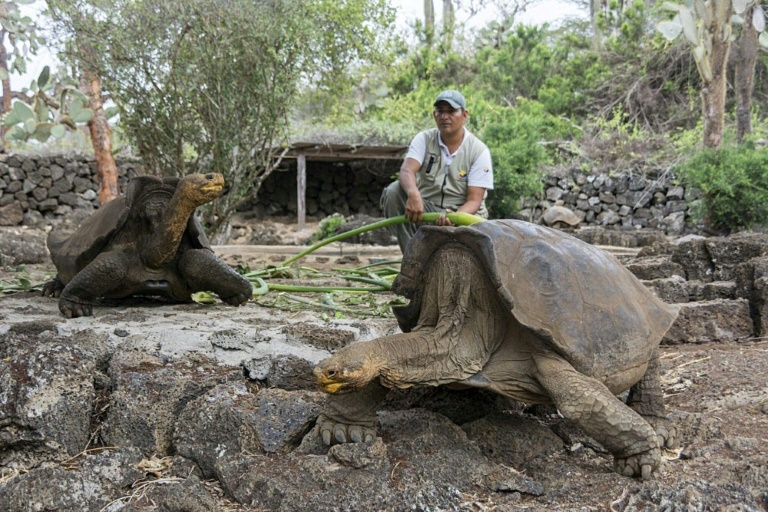‘Extinct’ giant tortoise to be bred in captivity
A species of Galapagos giant tortoise thought to have been made extinct 150 years ago will be bred in captivity, officials said, after DNA studies showed specimens discovered in the last decade shared similar genetic makeup.
The breeding program involving 32 tortoises — 19 of which are descended from the Chelonoidis nigra species in question — will allow for medium-term repopulation of their native Floreana Island, the Galapagos Islands National Park said Wednesday.
The Chelonoidis nigra species was wiped out on Floreana Island by whalers who took them on ships as food, abandoning some on the slopes of Isabela Island’s Wolf Volcano to lighten their load.
Species with similar genetics have since been found on Isabela Island, where researchers from the National Park and Galapagos Conservancy analyzed 150 tortoises during expeditions in 2008 and 2015.

The breeding program will help “repopulate Floreana Island with tortoises which aren’t exactly the same, but have very high genetic links to its native species,” Washington Tapia, director of the Giant Tortoise Restoration Initiative, told AFP.
In 2015, Ecuador announced the discovery of the Chelonoidis donfaustoi species on the Galapagos, bringing the total number of Galapagos giant tortoise species to 15 — of which three are extinct.
The Galapagos Islands, which served as a laboratory to English naturalist Charles Darwin, have enjoyed World Heritage Site status since 1979.
For more news your way
Download our app and read this and other great stories on the move. Available for Android and iOS.









